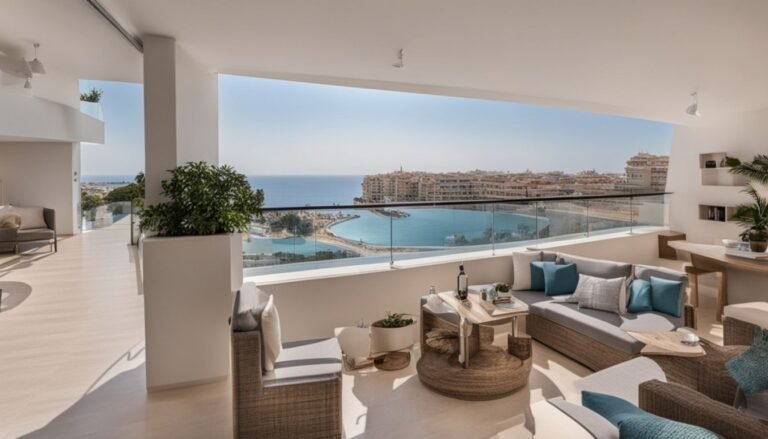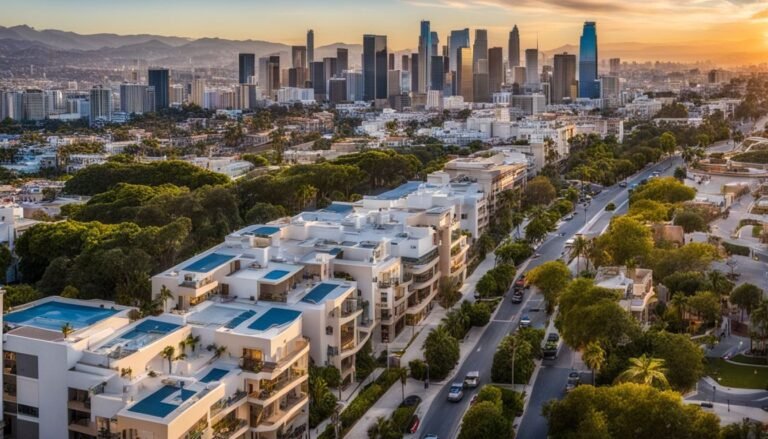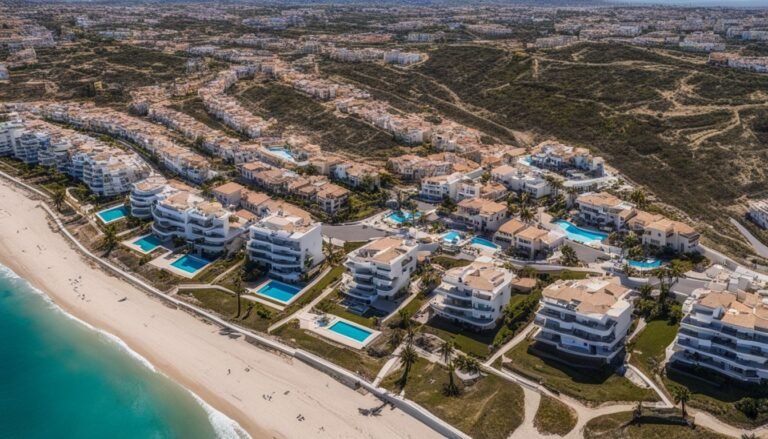Navigating Legalities: Tips For Buying Property In Costa Blanca
Buying property in Costa Blanca can be confusing. You need a special tax number called an NIE for all financial dealings in Spain. This article will guide you on how to smoothly navigate these legal steps.
Prepare to make your dream home a reality!
Understanding the Spanish Property Market in Costa Blanca
Exploring the Spanish property market in Costa Blanca reveals a thriving real estate environment with diverse investment opportunities. Investors can tap into a dynamic market brimming with potential for lucrative returns and long-term growth.
Exploring Investment Opportunities in Real Estate in Costa Blanca
Costa Blanca presents an attractive landscape for those interested in real estate investments. The region’s thriving property market, bolstered by its popular coastal cities like Alicante City and Benidorm, offers a range of opportunities from luxurious villas to affordable condos.
With the guidance from agencies such as Inmo Sol y Casas, investors can navigate the Spanish property market more effectively, identifying properties that not only promise substantial dividends but also match their investment profile.
The legal framework in Spain supports foreign investment, making it simpler for investors to purchase real estate. By leveraging services from Blanco Abogados for essential checks on property registration and ensuring no outstanding debts are tied to potential investments, buyers can secure their assets confidently.
This strategic approach allows investors to capitalize on favorable exchange rates and potentially beneficial mortgage agreements with Spanish banks, further maximizing their returns in one of Europe’s most sought-after destinations.
Important Legal Checks Before Buying a Property

Before buying a property in Costa Blanca, it’s essential to conduct thorough legal checks. Take time to review property registration, outstanding debts, and the seller’s right to sell.
For more details on navigating legalities when purchasing real estate in this region, read on!
Property Registration
Property registration in Costa Blanca is a crucial step for buyers to ensure their new home legally belongs to them. After the property transfer, it’s necessary to record the transaction with the Registro de la Propiedad.
This process solidifies ownership and prevents future legal disputes over your property. To complete this essential task, you pay specific taxes and fees associated with land registration.
Foreign buyers must pay special attention during this process. Failing to register can lead to complications down the line, making it difficult to sell or pass on the property in the future.
A registered deed confirms your rights as a property owner and shields you from potential claims by others. Buyers should work closely with real estate agents and legal professionals who understand these critical steps in Costa Blanca’s property market.
Outstanding Debts
Checking for outstanding debts is a crucial step before you finalize any property purchase in Costa Blanca. Debts, taxes, and fees linked to the property stay with it, not the former owner.
This means you could be responsible for any unpaid bills if diligent checks are missed. A comprehensive search at the Registro de la Propiedad can reveal if there are any lingering financial obligations tied to your potential new home.
Ensuring no pending mortgages or unpaid taxes can save you from future headaches and additional costs. Consulting with a conveyancing expert can help identify these issues early on.
They will guide you through legal requirements and assist in obtaining a clear title deed. After resolving debt concerns, verifying the seller’s right to sell becomes the next important step.
Seller’s Right to Sell
Before finalizing a property purchase in Costa Blanca, it is crucial to verify the seller’s right to sell. This involves ensuring that the property owner has legal authority and ownership rights for selling the property.
It’s essential to confirm that there are no pending disputes or legal issues surrounding the property title. Additionally, reviewing any existing mortgage or outstanding debts on the property is necessary to avoid complications during the purchase process.
Clearing these aspects beforehand will help streamline the transaction and provide peace of mind for both parties involved.
Common Mistakes Made by Foreign Buyers
Foreign buyers often make common mistakes when purchasing property in Costa Blanca. These errors can lead to significant issues down the line, potentially causing financial and legal complications. It’s crucial to be aware of these mistakes to avoid them. Here are the common mistakes made by foreign buyers:
- Failing to obtain a Número de Identificación de Extranjero (NIE) before engaging in financial transactions in Spain.
- Neglecting to find an independent lawyer before signing any property purchasing documents in Costa Blanca.
- Not conducting a thorough inspection of the property before purchasing, leading to potential issues with its condition and value.
These mistakes can be costly and time-consuming to rectify, so it’s essential for foreign buyers to take proactive steps to avoid them.
Essential Steps in the Property Buying Process
Research the current market and property values in your desired location, ensuring a solid understanding of potential investment opportunities. Prepare financially and seek legal and technical consultations to guide you through the process, from finding the right property to finalizing the purchase.
Financial Preparation
Before buying a property in Costa Blanca, it is crucial to prepare financially. Foreign buyers should obtain a tax identification number (NIE) for all financial transactions and consider opening a local bank account for seamless transactions and handling regular payments like utilities and community fees.
If financing is required, non-residents can typically finance up to 60-70% of the property value with Spanish banks. Understanding these financial aspects will help foreign buyers navigate the property purchase process more effectively.
Costa Blanca indeed offers various investment opportunities that might require robust financial planning.
Property Search
After completing the necessary financial preparations, it’s time to embark on the property search in Costa Blanca. Begin by engaging with reputable real estate agencies or buying agents specializing in this region for tailored assistance.
Utilize social media platforms and local newspapers to uncover potential investment properties, taking advantage of their robust engagement within the local market. Ensure that you communicate your budget and requirements clearly to these professionals so they can unveil suitable options for consideration.
As you navigate through the ever-evolving property market in Costa Blanca, it is crucial not only to look at new build properties but also explore resale options to unlock hidden gems that may align perfectly with your preferences and investment goals.
Legal and Technical Consultations
Ensure you seek legal guidance from an independent lawyer before finalizing a property purchase. A lawyer will ensure that the property is free from any legal issues and help you understand the complex Spanish real estate laws.
Simultaneously, it is essential to consult with a technical expert or surveyor who can inspect the condition of the property to identify potential structural concerns or building code violations.
These consultations will provide invaluable insight into the legal and physical aspects of your prospective investment, allowing for informed decision-making.
Conclusion
Ensure all necessary legal checks are completed before buying a property. Thoroughly inspect the property to assess its condition and value. Consider hiring an experienced real estate agent and a lawyer specializing in Spanish property law.
Be aware of the taxes involved in property purchasing, including Transfer Tax for resale properties and VAT for new properties. It is essential to understand different types of property ownership in Spain and open a local bank account for seamless transactions.
FAQs
1. What do I need to buy property in Costa Blanca?
To buy property in the Valencia region, including popular areas like Denia and Villamartin, you’ll need a Spanish bank account, an NIE number (Número de Identificación de Extranjero), and possibly a mortgage provider if you’re not paying outright. Consider hiring legal services to help with the paperwork.
2. Are there extra costs when buying property in Costa Blanca?
Yes, apart from the purchase price, be ready for additional costs such as transfer tax for resale properties or VAT for new build properties, notary fees, registration fees, and possibly a land registry fee. Using an estate agency might also involve commission fees.
3. How does Brexit affect British buyers in Costa Blanca?
Brexit has changed some rules for British buyers; now considered non-EU nationals, they may face different visa requirements and might benefit from looking into options like the Golden Visa program for stays longer than 90 days at a time.
4. Can I get a mortgage to buy property in Costa Blanca?
Absolutely! Both local banks like CaixaBank and international lenders offer mortgages to foreigners. You’ll find various options such as fixed-rate mortgages or variable-rate mortgages available depending on your financial situation.
5. Should I exchange my money before purchasing property in Costa Blanca?
Engaging with a foreign exchange service can offer better currency conversion rates compared to direct bank transfers which might save you money when transferring large amounts like down payments or completing sales transactions.
6. What is the golden visa and how can it benefit me as a property buyer in Spain?
The Golden Visa is a residency permit offered to non-EU investors who make significant investments in Spain, including real estate purchases over a certain amount. It allows easier access to living legally liable full-time within Spain along with freedom of movement throughout the Schengen Zone.







